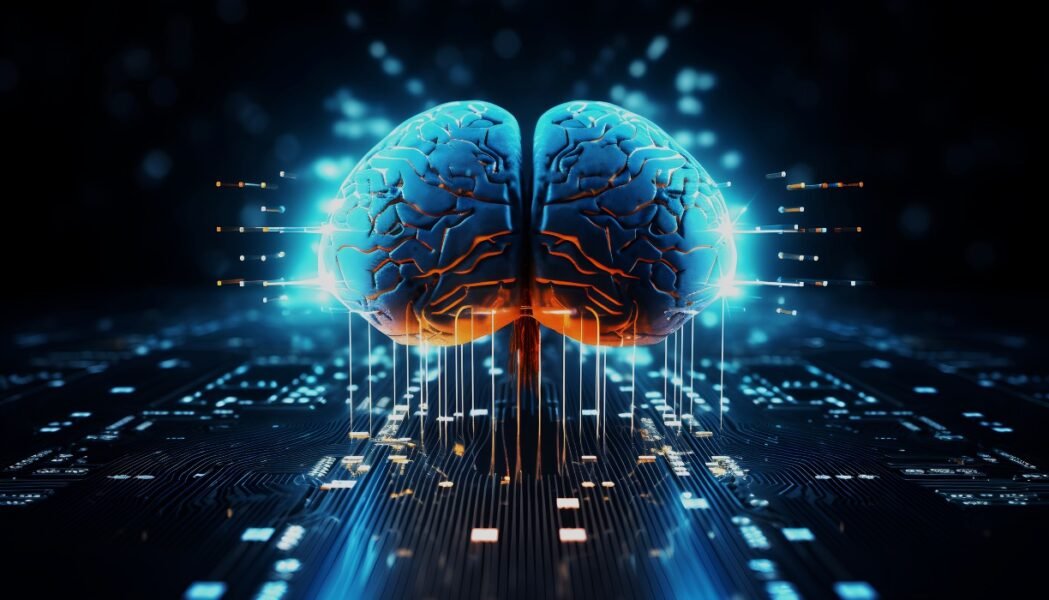Title: Unlocking the Future: The Power of Artificial Intelligence and Machine Learning

In today’s fast-paced world, technology is advancing at an unprecedented rate. Among the most revolutionary innovations are Artificial Intelligence (AI) and Machine Learning (ML). These technologies are no longer confined to research labs or science fiction; they have become integral parts of our daily lives. From personalized recommendations on streaming platforms to automated customer service, AI and ML are transforming industries, reshaping business models, and enhancing human capabilities.
What is Artificial Intelligence?
Artificial Intelligence refers to the simulation of human intelligence in machines. The goal of AI is to create systems that can perform tasks that typically require human intelligence, such as recognizing speech, making decisions, translating languages, and even understanding emotions. Unlike traditional software that follows pre-programmed instructions, AI systems learn from experience and improve over time.
AI can be divided into two categories: Narrow AI and General AI. Narrow AI, also known as weak AI, is designed to perform a specific task, such as facial recognition or voice assistants like Siri and Alexa. General AI, or strong AI, is still a theoretical concept that aims to create machines that possess human-like cognitive abilities, enabling them to perform any intellectual task that a human can do.
The Role of Machine Learning in AI
Machine Learning, a subset of AI, plays a vital role in helping machines learn from data and improve their performance over time. In ML, algorithms are trained on large datasets to identify patterns and make predictions without explicit programming. The more data these algorithms process, the better they become at making accurate decisions.
There are three primary types of Machine Learning:
- Supervised Learning: In supervised learning, algorithms are trained using labeled data, where both the input and the desired output are provided. The system learns to map inputs to the correct output, making it ideal for tasks like image classification and spam email detection.
- Unsupervised Learning: Unlike supervised learning, unsupervised learning uses unlabeled data. The system tries to identify patterns or groupings within the data, such as clustering similar items together. It is widely used for customer segmentation, anomaly detection, and recommender systems.
- Reinforcement Learning: Reinforcement learning involves training algorithms through trial and error. The machine learns to make decisions by receiving rewards or penalties based on its actions. This approach has been used in training AI to play complex games like chess and Go, as well as in robotics for navigation and decision-making.
The Impact of AI and Machine Learning Across Industries
AI and ML are not just technological trends; they are revolutionizing entire industries. Here are some key areas where these technologies are making a significant impact:
1. Healthcare
AI and ML are transforming healthcare by enabling faster and more accurate diagnoses. Machine learning algorithms can analyze medical images, detect abnormalities, and predict patient outcomes with greater precision than ever before. AI-powered tools are also used for drug discovery, personalized treatment plans, and managing patient data.
For example, IBM’s Watson Health uses AI to analyze vast amounts of medical data to assist doctors in diagnosing diseases and suggesting treatments. Moreover, AI-enabled wearables like fitness trackers and health monitors provide continuous data to improve patient care.
2. Finance
In finance, AI and ML are driving innovation in areas such as fraud detection, algorithmic trading, and risk management. Machine learning algorithms can analyze large volumes of transactions to identify suspicious patterns and prevent fraudulent activities. AI-powered chatbots are also transforming customer service in the banking sector, providing round-the-clock assistance to customers.
For investment purposes, AI-driven algorithms are used for high-frequency trading, where they analyze market data and execute trades at lightning speed to maximize profits.
3. Retail and E-Commerce
AI and ML are revolutionizing the retail industry by enhancing the customer experience. Machine learning is used to power recommendation engines, enabling platforms like Amazon and Netflix to suggest products or content based on users’ past behaviors. AI also optimizes inventory management and supply chain logistics, ensuring that retailers have the right products available at the right time.
4. Transportation
AI and ML are at the core of advancements in autonomous vehicles. Self-driving cars, powered by AI, use machine learning algorithms to analyze data from sensors and cameras to navigate roads, avoid obstacles, and make decisions in real time. Companies like Tesla and Waymo are leading the way in developing autonomous driving technology, with the potential to make roads safer and more efficient.
5. Customer Service
AI-driven chatbots and virtual assistants are transforming customer service. These systems can handle routine queries, solve common problems, and even process transactions, freeing up human agents to focus on more complex issues. AI’s ability to understand natural language and respond intelligently is making customer service more accessible and efficient.
The Future of AI and Machine Learning
As AI and Machine Learning continue to evolve, the possibilities seem limitless. The integration of AI into everyday life is expected to increase, bringing new efficiencies, smarter systems, and more personalized experiences. However, this rapid growth also presents challenges, including ethical concerns related to data privacy, security, and the impact of automation on jobs.
The key to harnessing the full potential of AI and ML will be collaboration between technology developers, businesses, and policymakers. Responsible development, transparency, and regulation will ensure that these technologies benefit society as a whole.
Conclusion
Artificial Intelligence and Machine Learning are no longer just futuristic concepts—they are already reshaping our world. From healthcare and finance to transportation and retail, AI and ML are unlocking new opportunities for businesses and improving the quality of life for individuals. As these technologies continue to advance, we can only imagine the exciting possibilities they will bring to the future.



